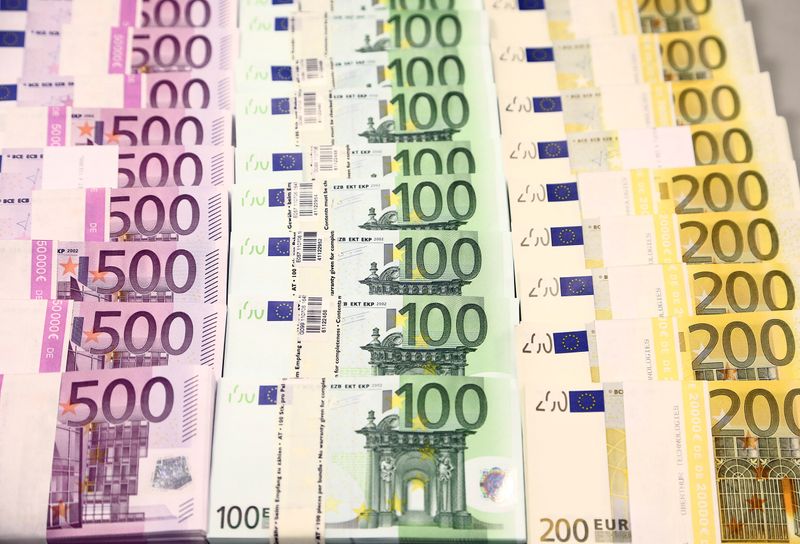By Saikat Chatterjee
LONDON (Reuters) - The euro held near seven-week lows on Friday after the European Central Bank struck a more dovish tone at Thursday's meeting than some had expected.
Investor attention will turn to the flash PMI releases for January, which are some of the first indicators of how the global economy has performed moving into 2020.
The key data, the euro zone and German PMI figures, are expected to rise from previous readings. Higher-than-expected readings could trigger a rally.
The euro fell against the dollar (EUR=EBS), to $1.1049. It was near a five-week low against the British pound (EURGBP=D4) and 33-month low against the Swiss franc (EURCHF=).
"Sentiment has steadied overnight as evident from the Swiss franc's weakness against the euro and the dollar with markets firmly focused on the PMI data," said Thu Lan Nguyen, a FX strategist at Commerzbank (DE:CBKG) based in Frankfurt.
ECB President Christine Lagarde told a news conference after Thursday's meeting that risks to euro zone growth remained tilted to the downside. Markets took her tone as dovish.
"Some people were hoping that Lagarde could talk about the possibility of policy normalization after Riksbank ended negative interest rates late last year. But there was absolutely no such indication from her," said Kazushige Kaida, head of foreign exchange at State Street (NYSE:STT) Bank.
Riksbank, the central bank of Sweden, ended five years of negative interest rates last month, despite a slowdown in the Swedish economy.
The dollar index (DXY) held at 97.717 and was on track for a third consecutive week of gains.

The Australian dollar traded at $0.6843